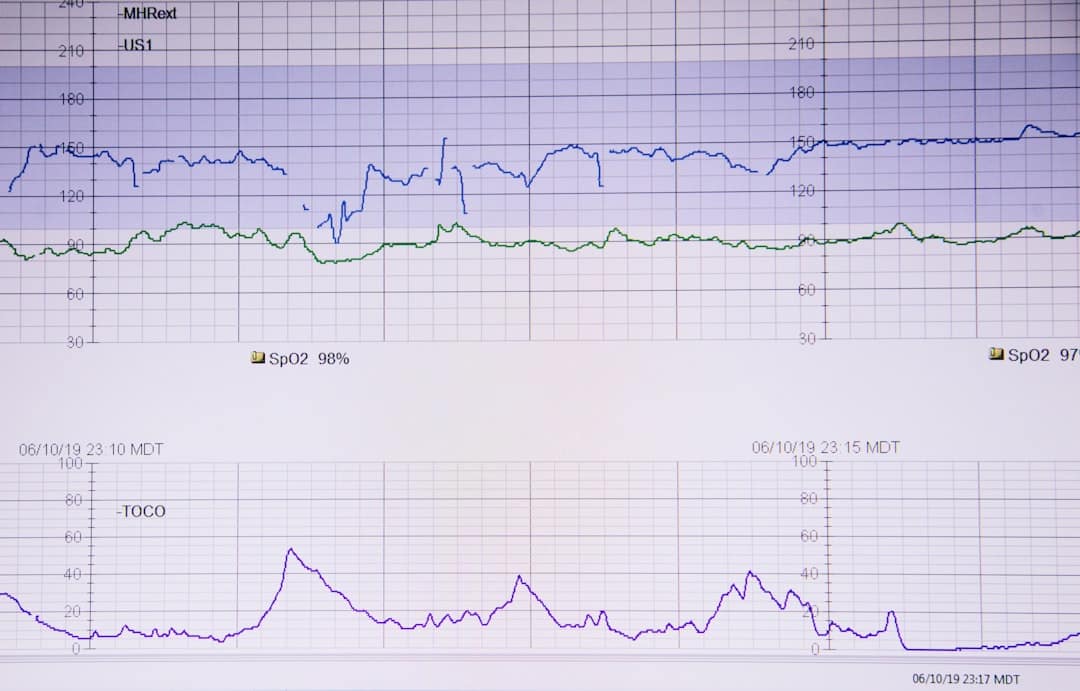Artificial Intelligence (AI) has emerged as a transformative force in various sectors, and healthcare is no exception. The integration of AI into predictive healthcare represents a paradigm shift, enabling healthcare providers to anticipate patient needs, improve outcomes, and streamline operations.
This proactive approach not only enhances patient care but also optimizes resource allocation within healthcare systems. The potential of AI in predictive healthcare lies in its ability to analyze complex datasets at unprecedented speeds. Traditional methods of data analysis often fall short in identifying patterns that can lead to early intervention.
AI algorithms, particularly those based on machine learning and deep learning, can sift through millions of data points to uncover insights that human analysts might overlook. As a result, predictive analytics powered by AI can lead to earlier diagnoses, personalized treatment plans, and ultimately, better health outcomes for patients.
Key Takeaways
- AI has the potential to revolutionize predictive healthcare by leveraging data and advanced algorithms to improve patient outcomes and reduce healthcare costs.
- Current applications of AI in predictive healthcare include disease prediction, personalized treatment plans, and early detection of medical conditions.
- Advancements in AI technology, such as deep learning and natural language processing, are enhancing the accuracy and efficiency of predictive healthcare models.
- Challenges and limitations of AI in predictive healthcare include data privacy concerns, algorithm bias, and the need for regulatory oversight.
- Ethical and privacy concerns in AI-driven predictive healthcare highlight the importance of transparency, consent, and responsible data usage to protect patient rights and confidentiality.
Current Applications of AI in Predictive Healthcare
AI is currently being utilized in various applications within predictive healthcare, showcasing its versatility and effectiveness. One prominent application is in the realm of disease prediction and prevention. For instance, machine learning models are being developed to predict the onset of chronic diseases such as diabetes and cardiovascular conditions by analyzing patient data, lifestyle factors, and genetic predispositions.
These models can identify at-risk individuals long before symptoms manifest, allowing for timely interventions that can significantly alter disease trajectories. Another significant application of AI in predictive healthcare is in the realm of patient monitoring and management. Wearable devices equipped with AI algorithms can continuously track vital signs and other health metrics, providing real-time data to healthcare providers.
For example, smartwatches can monitor heart rates and detect irregularities that may indicate potential health issues. This continuous stream of data enables healthcare professionals to make informed decisions about patient care, adjusting treatment plans as necessary based on real-time insights.
Advancements in AI Technology for Predictive Healthcare

The advancements in AI technology have been pivotal in enhancing the capabilities of predictive healthcare. One notable development is the evolution of natural language processing (NLP), which allows AI systems to interpret and analyze unstructured data from clinical notes, research articles, and patient communications. By harnessing NLP, healthcare providers can extract valuable insights from vast amounts of textual data, leading to improved decision-making processes.
Moreover, the integration of AI with big data analytics has revolutionized how healthcare organizations approach predictive modeling. The ability to process and analyze large datasets from diverse sources—such as genomics, imaging studies, and social determinants of health—enables more accurate predictions. For instance, AI algorithms can analyze genomic data alongside clinical histories to identify patients who may benefit from targeted therapies or preventive measures.
This holistic approach not only enhances predictive accuracy but also fosters a more personalized approach to patient care.
Challenges and Limitations of AI in Predictive Healthcare
Despite the promising advancements in AI for predictive healthcare, several challenges and limitations persist.
AI algorithms rely heavily on high-quality datasets for training and validation.
In many cases, healthcare data can be incomplete, inconsistent, or biased, leading to inaccurate predictions. For example, if an AI model is trained predominantly on data from a specific demographic group, it may not perform well when applied to other populations, potentially exacerbating health disparities. Another challenge lies in the interpretability of AI models.
Many advanced AI techniques, particularly deep learning algorithms, operate as “black boxes,” making it difficult for healthcare professionals to understand how predictions are generated. This lack of transparency can hinder trust among clinicians and patients alike. If healthcare providers cannot explain the rationale behind an AI-generated recommendation or prediction, they may be reluctant to incorporate these insights into their clinical decision-making processes.
Ethical and Privacy Concerns in AI-Driven Predictive Healthcare
The deployment of AI in predictive healthcare raises significant ethical and privacy concerns that must be addressed to ensure responsible use. One major issue is the potential for bias in AI algorithms. If the training data reflects existing biases—whether related to race, gender, or socioeconomic status—the resulting predictions may perpetuate these biases in clinical practice.
For instance, an AI system trained on predominantly white populations may fail to accurately predict health outcomes for minority groups, leading to unequal access to care. Privacy concerns also loom large in the realm of predictive healthcare powered by AI. The collection and analysis of sensitive health information necessitate stringent safeguards to protect patient confidentiality.
As healthcare organizations increasingly rely on AI systems that aggregate vast amounts of personal data, the risk of data breaches or misuse escalates. Ensuring compliance with regulations such as the Health Insurance Portability and Accountability Act (HIPAA) is crucial for maintaining patient trust while leveraging the benefits of AI.
The Impact of AI on Healthcare Professionals and Patient Care

The integration of AI into predictive healthcare is reshaping the roles of healthcare professionals and enhancing patient care in various ways. For clinicians, AI serves as a powerful tool that augments their decision-making capabilities rather than replacing them. By providing evidence-based insights derived from comprehensive data analysis, AI enables healthcare providers to make more informed choices regarding diagnosis and treatment options.
This collaborative approach fosters a more efficient workflow, allowing clinicians to focus on direct patient interactions while relying on AI for data-driven support. From a patient care perspective, the impact of AI is profound. Predictive analytics can lead to more personalized treatment plans tailored to individual patient needs and preferences.
For example, patients with chronic conditions can benefit from AI-driven recommendations that consider their unique medical histories and lifestyle factors. Additionally, early detection of potential health issues through predictive modeling can empower patients to take proactive steps toward managing their health, ultimately leading to improved outcomes and enhanced quality of life.
Future Trends and Potential Developments in AI for Predictive Healthcare
Looking ahead, several trends are poised to shape the future landscape of AI in predictive healthcare. One emerging trend is the increasing emphasis on interoperability among healthcare systems. As organizations strive to share data seamlessly across platforms, the ability for AI algorithms to access diverse datasets will enhance predictive accuracy and enable more comprehensive analyses.
This interconnectedness will facilitate a holistic view of patient health that transcends individual encounters. Another promising development is the rise of federated learning—a decentralized approach that allows multiple institutions to collaborate on training AI models without sharing sensitive patient data directly. This method addresses privacy concerns while still enabling the collective improvement of predictive algorithms across diverse populations.
As federated learning gains traction, it has the potential to enhance the robustness and generalizability of AI models used in predictive healthcare.
The Role of AI in Shaping the Future of Predictive Healthcare
As we navigate the complexities of modern healthcare, the role of AI in shaping predictive healthcare cannot be overstated. The technology’s ability to analyze vast datasets and generate actionable insights holds immense promise for improving patient outcomes and optimizing healthcare delivery systems. While challenges related to data quality, interpretability, ethics, and privacy remain significant hurdles, ongoing advancements in technology and collaborative efforts among stakeholders will pave the way for a more effective integration of AI into predictive healthcare.
The future landscape will likely see a continued evolution of AI applications that prioritize patient-centered care while addressing ethical considerations head-on. As healthcare professionals embrace these innovations, they will be better equipped to provide personalized care that meets the unique needs of each patient. Ultimately, the synergy between human expertise and artificial intelligence will redefine how we approach health management and disease prevention in an increasingly complex world.
In a recent article discussing the future of AI in predictive healthcare, it is interesting to note the importance of utilizing the best software for UX design. As AI continues to revolutionize the healthcare industry, user experience design will play a crucial role in ensuring that these technologies are accessible and user-friendly. For more information on the best software for UX design, check out this article.
FAQs
What is AI in predictive healthcare?
AI in predictive healthcare refers to the use of artificial intelligence technologies, such as machine learning and deep learning, to analyze large amounts of healthcare data in order to predict and prevent potential health issues in patients.
How is AI being used in predictive healthcare?
AI is being used in predictive healthcare to analyze patient data, including medical records, genetic information, and lifestyle factors, to identify patterns and make predictions about potential health risks and outcomes. This can help healthcare providers intervene earlier and provide more personalized care.
What are the benefits of AI in predictive healthcare?
The benefits of AI in predictive healthcare include early detection of health issues, more personalized treatment plans, improved patient outcomes, and reduced healthcare costs. AI can also help healthcare providers make more informed decisions and prioritize resources more effectively.
What are the challenges of implementing AI in predictive healthcare?
Challenges of implementing AI in predictive healthcare include concerns about data privacy and security, the need for high-quality and diverse healthcare data for training AI models, and the potential for bias in AI algorithms. Additionally, there may be resistance to adopting AI technologies among healthcare providers and patients.
What is the future of AI in predictive healthcare?
The future of AI in predictive healthcare is likely to involve continued advancements in AI technologies, increased integration of AI into healthcare systems, and the development of more sophisticated predictive models. This could lead to earlier and more accurate predictions of health risks, as well as more targeted and effective interventions.

